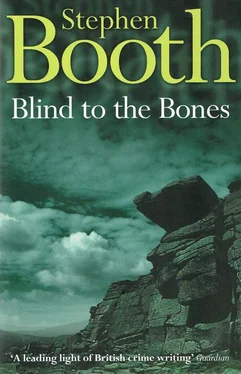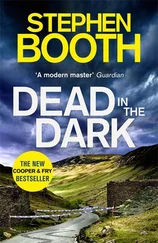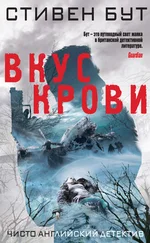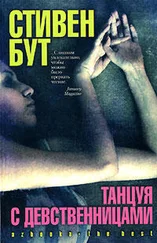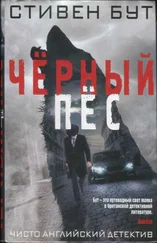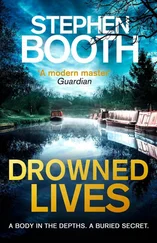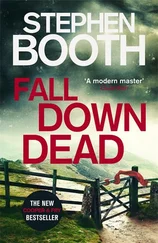His neighbour, Peggy Check, had made a good point. Somebody was being symbolically killed in this ritual. It might be Nathan Pidcock, the carrier who had caused the cholera outbreak through his greed. But the target of the sticks might also be more recent, the victim of a murder committed by a close-knit group who would never talk. And no witnesses except, perhaps, for one frightened boy. The postmortem on the skeletalized remains found in the churchyard had revealed several broken bones. Barry Cully had been beaten to death and his body concealed in a shallow grave among the other dead of Withens. The scene of his murder had burned to ashes.
The Border Rats’ performance might be an old tradition. But the story they told could be much more recent. Could it be the story of Barry Cully’s murder?
He waited, listening to the chant and the screaming, watching the dancers approach the climax of their performance. The rat fell and was symbolically beaten with the sticks. Then he got up, and the Border Rats took the sporadic applause from the damp crowd.
Was he any the wiser? No. But it had been a nice theory.
Cooper began to walk back across the road, passing in front of the church. He didn’t give a second glance to Ruby Wallwin, who had been asked by Marion Oxley to put the finishing touches to the Withens well dressing. She was clutching a handful of the most delicate petals of all, which she had collected only that morning. She had shuffled down to the bank of the stream in her bedroom slippers, her joints still stiff because she had only just got out of bed, but knowing that the petals had to be perfectly fresh. They were white dog roses, pure and gleaming, still damp from the rainfall overnight.
Mrs Wallwin had never got a chance to talk to the vicar, and it was too late now. But she thought it was probably for the best anyway that she hadn’t said anything. The Oxleys were starting to accept her now, and it wouldn’t do for them to think she was passing on the things she overheard them shouting at each other when they forgot she was there.
Ruby Wallwin bent to the bottom corner of the picture, where a group of black figures had been created from tiny alder cones and roasted coffee beans. She wasn’t sure of the meaning of the picture. But she knew that the white rose petals she lay at the feet of the black figures looked very much like bones.
Diane Fry was sitting in an interview room at West Street with DI Paul Hitchens. She stared at the man across the table, hoping they weren’t going to have a repeat of the silence she had endured during the last interview she’d conducted here.
‘The stick that was found in the railway tunnel has Neil Granger’s blood on it,’ she said. ‘Not to mention traces of his cerebrospinal fluid, and fragments of bone embedded in the wood.’
She looked up, but got no reaction.
‘At the other end of the stick, we have some fingerprints. As it happens, these are prints that we already had on record.’
‘That was lucky, wasn’t it?’ said Hitchens, with a smile. ‘Sometimes, we do get a bit of luck.’
Fry nodded. ‘Detective Inspector Hitchens is right. We collected these particular fingerprints very recently.’
There was no response, but she hadn’t asked a question yet. Fry stared at the man opposite her, and he met her gaze calmly. She was a little unnerved by his appearance — his paleness, the blackness of his hair and the dark stubble on his cheeks.
‘We took these prints for elimination purposes,’ she said. ‘The same prints were on the bronze bust we found, and on a small brass box.’
He actually nodded then, as if encouraging her to continue.
‘They were also elsewhere in your brother’s house,’ she said.
And Philip Granger smiled at the mention of his brother.
Driving on the A628 towards the Flouch crossroads, Ben Cooper found the treacly expanses of Black Hill and Withens Moor opening up all around him. When he looked down into the valley, he could see the rain drifting across the face of the hills in sheets, like mist.
He had already passed the sites of two of the villages that had been on this road, the communities that Tracy Udall had said were removed by the water companies. Woodhead and Crowden at least had a few isolated houses left to show where they had been. But now the map said that he was approaching Saltersbrook.
Cooper looked down the hill from the road. There was a stony track leading down into a small valley, where a brook fed into the River Etherow and on down to the reservoirs. At the bottom of the track, he could see a tiny stone bridge over the stream. It looked like a packhorse bridge — presumably for the traders who had once brought salt on their packhorses from Cheshire to the cities in Yorkshire. This must have been the original salters’ way, which the village of Saltersbrook had been named after. But now, there was nothing here.
Deep banks of bracken grew on the slopes at the sides of the brook, masking some of the ground where Saltersbrook had once stood. All that remained of the village were the foundations of a few houses and the ruins of the village inn. Fireplaces were still visible in collapsed rooms where the inn had stood on rising ground beyond the bridge. The climb to it from the bridge was very steep, and the track had been cobbled to provide a secure grip for the hoofs of the packhorses. The fallen stones of the inn were overgrown now with nettles and rough grass. At the moment, they were being grazed by a few sheep.
Apart from the traffic on the A628, there was nothing else human in the landscape, except for the turbines of the wind farm to the north-east. He noticed that two of the turbines were motionless. And when he turned a bend, he suddenly had a clear view across the expanse of moor to the wind farm. There were several vehicles parked there.
Cooper pulled into the side of the road, careful not to drive too far on to the soft verge, where his wheels would surely sink into the peat. Clustered at the base of the turbines, he could see a couple of Land Rovers, a minibus, even a small mobile crane. There were people working at the wind farm, presumably a maintenance crew. How long had they been working there, without him being aware of them? Who might they have seen going to and from Withens from their unique vantage point?
Cooper looked at his watch. He was early yet. He had plenty of time to pay them a visit.
Philip Granger had decided to ignore the advice of the duty solicitor and explain himself. He did it with the same smile, as if he were helping his interviewers to get their ideas straight.
‘You have this all wrong,’ he said. ‘I didn’t intend to kill Neil. Why would I do that? He was my brother.’
‘We know that Neil was going to help the Reverend Alton dig up the graveyard. You knew he would find the remains of Barry Cully. All of your family knew that. And somebody had to stop him. We think the obvious person to do that was you, Mr Granger.’
Philip Granger looked paler than ever. He didn’t seem to have shaved for several days, and his clothes didn’t smell too clean either. He had deteriorated noticeably during the last week, and someone ought to have noticed.
‘Yes, yes. But I didn’t mean to kill him,’ he said. ‘I meant to break Neil’s arm, that was all — not to kill him.’
‘But you did kill him, Mr Granger.’
He shook his head. ‘It was an accident. He moved at the wrong moment. He hit his head on the stones at the bottom of the air shaft. You know that’s what happened. It was an accident.’
‘A broken arm wouldn’t have kept him out of action for ever,’ said Hitchens. ‘Besides, you should have known Mr Alton would carry on clearing the graveyard on his own, which is what he did. Did you really hope that the remains of Barry Cully would never be found?’
Читать дальше
Конец ознакомительного отрывка
Купить книгу
